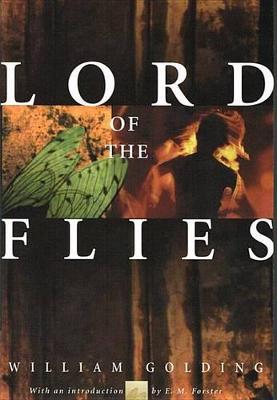“Maybe there is a beast… maybe it's only us.”I first read Lord of the Flies during my junior year of high school and while much of the story has faded in my memory the one thing that has stuck in my mind is the conflict between the rules of society and the impulse of "savagery." I decided that I was due for a re-read as an adult, and my thankfully my local library had the audiobook available!
There aren't any grownups anywhere on the island, a childhood dream. but quickly the children develop their own to take care of themselves. They realize quickly that order is needed, that rules are needed. And quickly power corrupts.
“What are we? Humans? Or animals? Or savages?”I can't help but wonder where this airplane of boys was headed though, and how exactly nobody over the age of twelve survived. Don't you find that weird? I do. But ignoring that bizarre set-up for the plot, this book is an exploration of the nature of boys when left without adult supervision. But the irony is that they grew up within society and cannot help but to create their own version of a capitalistic society with rules and punishments. And then they wonder why their free society turned into a trash-fire. But as an adult, I see this as more of a story of mimicry as a result of socialization rather than a look at the true nature of "man."
“We did everything adults would do. What went wrong?”The importance of this book is without question, even though much of the book hasn't aged well. Reading the book now really feels like a justification for toxic masculinity and "boys will be boys" behavior, despite that not being the artistic intent or context of the world when the book was first published in 1954. Everyone should have listened to Piggy.
Blog | Twitter | Pinterest
